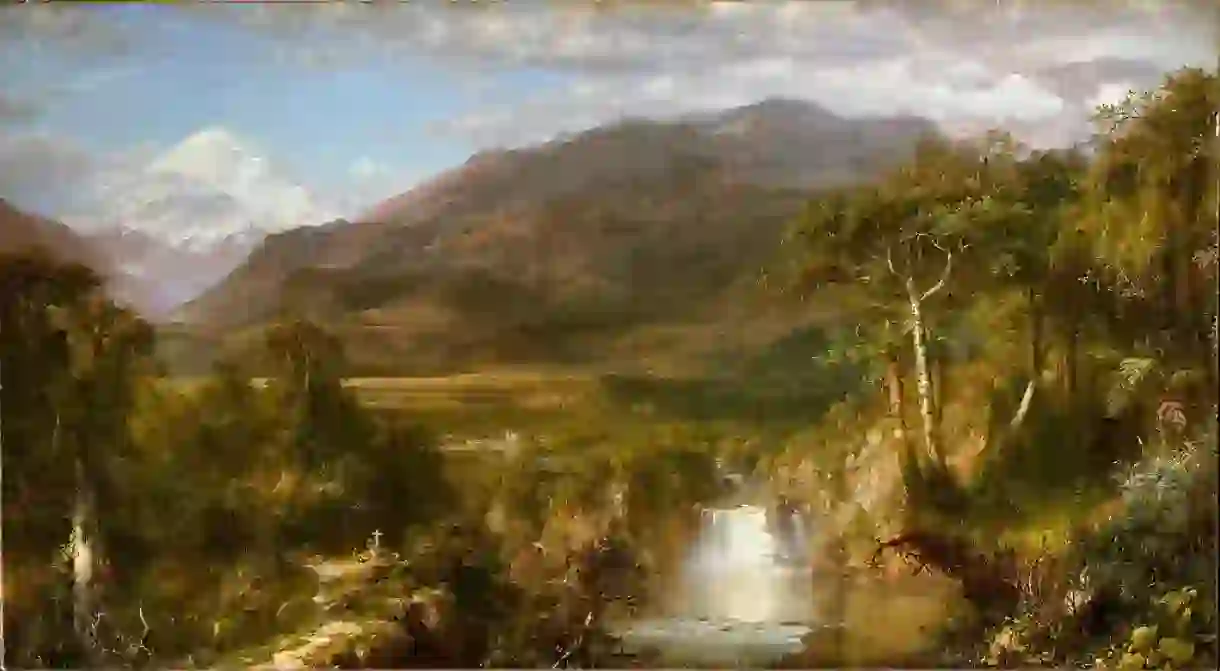How Alexander von Humboldt's Travels Shaped the Way We See the World Today

Alexander von Humboldt has more things named after him than any other scientist in the world, yet not many people know why. Born in Berlin in 1769, Humboldt was a Prussian scientist, geographer, explorer, and naturalist whose expeditions in the Americas, Russia, and Europe shaped the way we understand the world today.
Throughout all the continents and kingdoms of life, Humboldt is there. From the Humboldt penguin, the Humboldt squid, and more than 100 other animal species to the Humboldt’s Lily, Humboldt’s Schomburgkia, and 300 other plant species; Humboldt is omnipresent. Minerals, ocean currents, state parks, mountains, waterfalls, rivers, and bays from China to South Africa all bear his name. There are four towns named after him in North America alone, and his name has even reached the moon and stars while asteroid 54 Alexandra orbits the sun.

Author Andrea Wulf assembles a fascinating portrait of the scientist and naturalist in her book The Invention of Nature: Alexander von Humboldt’s New World, where he is also dubbed the “lost hero of science.” The title speaks to the fact that Humboldt’s name has largely been forgotten in the English-speaking world, despite his vast influence that still permeates every aspect of the natural sciences, and has shaped the way we view the planet today.

Where most people spend an entire lifetime mastering one area of study or craft, Humboldt dedicated his life to being an authority on several interrelating topics that included botany, zoology, and meteorology. He realized the relationship in all things, and how they could not be separated.
Humboldt had a brilliant enquiring mind, and he was able to form seemingly unrelated connections that have shaped our understanding of the natural world today. He made elaborate expeditions, collected clippings of plant species and distilled the complexity of his ideas and findings into books. He was one of the first Europeans who began to trace how plant and animal life was affected and adapted based on region, climate, and human interference. It may seem obvious today, but Humboldt was one of the first scientists to catalogue, in the most ambitious and encompassing way, the interconnected relationship between all things.

He also wrote extensively about what we know today as climate change, seeing how land and ecosystems were destroyed due to deforestation and advances in agriculture and development. He was able to see the devastation first-hand on his travels, and had the incredible foresight to understand how these practices not only hurt plant and animal ecosystems, but humans themselves, as natural cycles went too far out of balance.
He was a man of science, yet he understood that science and art were not separate, either. The beauty and intelligence of nature stirred such strong emotions in him that we was often moved to poetry. He was an influential proponent of Romantic philosophy and science and shared a deep friendship with German poet Goethe; the pair often inspired each other in their various endeavors.

Humboldt the man may have slipped out of our consciousness, yet his ideas are very much alive in the world today. He also paved the way for many of his disciples – among them Charles Darwin, Henry David Thoreau, George Perkins Marsh, and John Muir –who went on to develop his insights in new ways.













